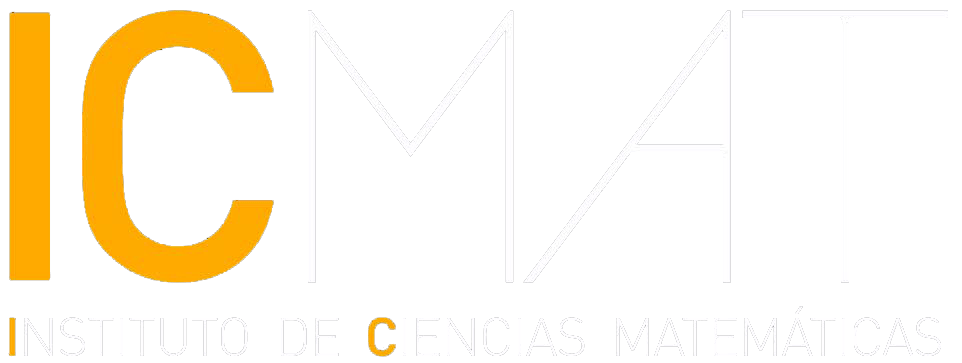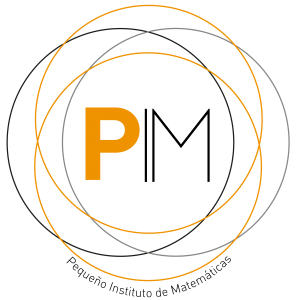
Sonia Perez Díaz works at the University of Alcalá. Her research develops both methods of description of geometric objects, in general curves and surfaces, and algorithms and software to manipulate mathematical expressions and other objects.
She has received the Award for International Scientific Cooperation of the Chinese Academy of Sciences for her collaboration with colleagues from the University of Chinese Academy of Science, including Prof. Liyong Shen. This collaboration has given rise to high-impact publications, talks at international conferences, and research stays. Among their work, articles [1] and [2] stand out.
According to Prof. Pérez Díaz, this recognition is the result of a continuous learning procedure, that is why she considers that the award stands for her whole academic trajectory. In this sense, her paper [3] was especially relevant in the area of algebraic geometry. In addition, she considers that her collaboration with Prof. J. Rafael Sendra has been essential for her. He was her thesis supervisor, and they have continued their collaboration through the years, giving rise to relevant results such as the paper [4].
She has also been a speaker and member of the scientific committee in multiple national and international conferences: ISSAC, ACA, MEGA, CASC, EACA, etc. Nowadays, she still collaborates with the research group of Prof. Liyong Shen, and in the next few months she will carry out a research stay in Beijing. She also carried out multiple research stays at RISC (Research Institute for Symbolic Computation: Linz, Austria) from where the book [5] emanated.
On the occasion of her prize, WOMAT interviewed Prof. Pérez Díaz.
Our warmest congratulations on the Award for International Scientific Cooperation of the Chinese Academy of Sciences. What has it meant for you?
I’m getting a lot of interview requests, even from the national Spanish TV, and it makes me think that all of this is reaching really far. Sometimes I feel that I go unnoticed in my daily research life, and all of a sudden my colleagues are becoming aware of my achievements. So my feelings are really mixed, it’s tough to realise that you need something as huge as this for your colleagues to realise you actually do research.
You got this recognition by the Chinese Academy of Sciences, and yet not the accreditation for full professor. Is Spain failing to recognise the talent of its researchers?
Spain certainly fails to help its researchers perform their daily jobs―at all levels. For a practical example, my husband has a rare disease and so I need to keep on top of that plus take care of my daughter. I told my university, and they are only giving me 20 hours’ leave in September. Even in my family, when I told them that I was going to live in Austria for a few months having a boyfriend here in Spain, they questioned me on why I wasn’t getting married… that type of thing.
I applied for the full professorship and didn’t get it in spite of being as qualified as anybody else. It turns out I’m one research project short―because I actually have the publications. I’m short on research stays and conferences, but that I haven’t been able to do because I lost one year. And I didn’t even lose it, because while my daughter slept I worked on my research. For having a kid you get three months’ exemption, which is about the same as your legal work leave, but after that you need to go back to teaching and also you can’t just go on a research stay, or go to Beijing for a year.
So it’s very frustrating, I must say I’ve been tempted to give up many times. Although when I got the award I got some motivation back. I’ve filed a complaint and they’re revising my full professorship application, although I don’t have much hope. I have a “gap”, and it’s justified but it’s hard, it’s just hard.
How long did it take you recover your previous publication rate after being a mother?
My daughter is 6, and I am starting to be in a normal situation. I have to make sacrifices: it is much harder to achieve it when you take care of someone. For example, due to my responsibilities, I have to work on weekends.
How long did it take you to get to a stable publication level?
After a year, the situation starts to stabilize. On the one hand, it is necessary that your child starts being independent to attend the nursery. On the other hand, you need to rearrange the house with one more person. As for the organization, it has been more difficult for us due to my husband’s conditions in a private company. He had a 2-month permission and after that, he had his usual schedule: he left home at 7: 00 and came back at 19:00. Luckily, this situation is improving.
How would you change the accreditation criteria so that this situation is taken into account?
The criteria have recently been adapted to the situations of maternity and illness. They provided more time to meet the requirements, but at the time of my application, this was not implemented. The deficiencies in this lead me to think that those who determine the criteria didn’t experience these situations; we need them to listen to us.
For permissions, I wonder why only the last 10 years are evaluated. For example, 2009 was a high-publication period for me but was not valid for my accreditation.
And what do you think if the requirements were relaxed instead of extending the time to get them?
I would find it fine. In my case, the requirement I did not meet was not being part of any research project for a few years. I fulfilled the personal work: I have published many articles, not sleeping when necessary. However, I left my research project in 2015 because I wasn’t sure that I could fulfill my responsibility with the research group: I needed to meet certain goals and failing could end up damaging both the project and its renovation. I went back in 2017; if I had stayed, I would have gotten the accreditation.
Within the university, what measures would you implement to improve the difficulties that women face?
I would improve the permission system, as I have mentioned before when talking about the permission I needed in September. Another example is that my husband was hospitalized during December but they only gave me a 3-day leave. I always concentrate on my teaching activity in the first semester, so this was insufficient and it generated a lot of stress for me. Finally, I was able to reorganize the schedule thanks to my students’ commitment.
In addition, I would also like that women are integrated into the departments: there are few women and, although the members of the department are not sexists, I have the feeling that we go unnoticed. For example, I am the 6th out of 40 in the teaching assignment, and on many occasions, I have not been appointed during my turn. They forget that I am there and I have to remind them that it is my turn; these situations hurt, and they rarely happen to men. Moreover, apart from these anecdotes, the numbers of female full professors and vice-chancellors are striking.
Indeed, there are no women full professors that have children in mathematics.
Motherhood closes the doors to positions that require more responsibility. Sometimes caring duties are shared but nowadays women face a greater workload. I applied for the full professor accreditation at the same time as some of my colleagues. Despite having the same research merits, all of them got it but I didn’t. In addition, in my department, there are only 4 women lecturers and 3 of us have children. The other 2 had children when they were younger and got their position later. However, delaying maternity implies a health risk.
Concerning responsibility positions, some time ago I noticed a journalist who travelled a lot and had children. I wondered how she could do it and I discovered while reading some interviews that it was her husband who had assumed all the care duties. The role of resignation is socially assigned to women and I think that this is a difficult situation. My family is very traditional and they have not always understood my decisions; this has sometimes been hard for me.
During the interview for cadena ser you said that many times you thought to give up. How did you manage this situation?
In relation to my professional life I can say that I am a stubborn person and I’m fighting a lot to get my results, so for sure my personality helps me not to give up. For instance, concerning the idea of applying for a full professor position, I tried to abandon this idea many times and sometimes I was happy with my decision but some other times it came back in my mind and I realized that I don’t want to give up. It is not for money but just to say that it is possible to get here.
I have to admit that this award motivated me to do more and to try to get more, so let’s see what happens with my application. So, I think that I was able to overcome the difficulties thanks to my dedication and determination.
Do you think that having a female role model can help to increase the mathematical vocation in young girls?
Personally, I did not have a female role model but I had professors, men and women, that motivated me and it is really important. I think the visibility that this award gives me in some circles can inspire other women. Furthermore, I have a personal example that shows the importance of female role models. My six-year-old daughter would like to be a doctor but some months ago, because of the lack of female references, she told me she changed her mind and she would be a nurse. I decided to show to her a lot of examples of doctors who are women and finally she changed her mind again.
Nowadays, I can say that I have a family, my husband and my daughter, I have a house and I’m going on holidays as a normal person. I truly believe that seeing a person that makes a lot of efforts but in the end gets important results, and above all if that person is a woman, can help to involve young women in science. I’m sure that many things have been done and have gone unnoticed. Now, I am being heard for this award but I have these papers since 2009 and here in Spain they have ignored me. In Beijing, people treated me extraordinarily well. Nevertheless, I guess that little by little we will get better.
We certainly hope so.
References:
[1] Characterization of Rational Ruled Surfaces. S.Pérez-Díaz y Li-Yong Shen.
Journal of Symbolic Computation. Volume 63, pp. 21–45. (2014)
[2] Inversion, Degree, Reparametrization and Implicitization of Rational Planar Curves Using μ-Basis. S.Pérez-Díaz y Li-Yong Shen. Computer Aided Geometric Design. DOI: 10.1016/j.cagd.2021.101957. Vol. 84, 101957. (2021)
[3] On the Problem of Proper Reparametrization for Rational Curves and Surfaces. S.Pérez-Díaz. Computer Aided Geometric Design. Vol. 23/4. pp. 307-323. (2006)
[4] Computing Birational Polynomial Surface Parametrizations without Base Points.
S.Pérez-Díaz y J. Rafael Sendra. Mathematics. DOI: 10.3390/math8122224. Vol. 8, 2224. (2020).
[5] Rational Algebraic Curves: A Computer Algebra Approach. R. Sendra, F. Winkler, S.Pérez-Díaz. Springer-Verlag Heidelberg, in series Algorithms and Computation in Mathematics. Volume 22. (2007)


